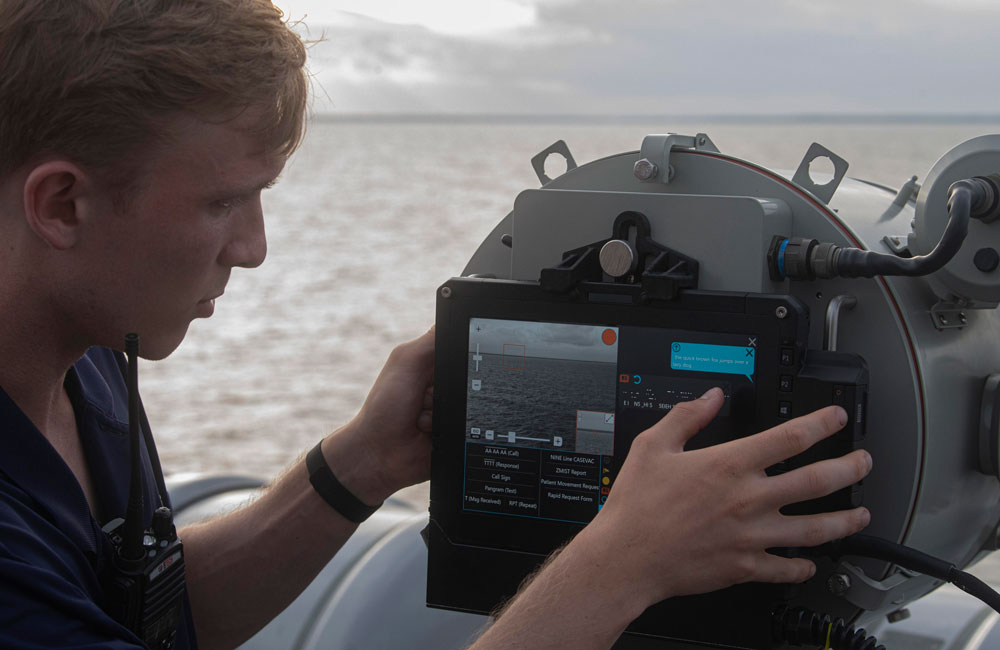VA Focuses on New AI Initiatives
The agency’s first-ever director of artificial intelligence lays out ambitious plans to leverage AI toward improved care.

The Department of Veterans Affairs is aiming to drastically expand its artificial intelligence research and implementation, according to newly appointed Director of Artificial Intelligence Gil Alterovitz.
The VA is an ideal staging ground to explore large-scale AI initiatives, said Alterovitz at the Nextgov Tech Talk on AI event Aug. 20. Alterovitz highlighted the VA’s extensive repository of patient health and genomic data, noting that “this enables a special opportunity to help veterans.”
The agency’s AI outlook appears predicated on leveraging this data to engage in diagnostics research, allowing levels of analytic sophistication that would have been previously impossible. However, Alterovitz emphasized this would require a broader transformation in VA IT to support this caliber of data processing.
The agency plans to accelerate AI development through private-public partnerships, particularly sprints where potential collaborators are allowed to test new AI tools, Alterovitz said. Industry partners would be given specific data sets and granted room to explore nascent solutions they might implement to leverage the VA’s expansive information repository.
Alterovitz intends to couple this exploration of public-private partnerships with hiring AI-focused talent, as fostering an innovative AI program requires in-house expertise covering its various sub-fields. However, this would also require thorough integration within the VA’s preexisting research centers and service lines — particularly through ensuring technical experts collaborate with doctors, designers and application developers.
“You don’t have an isolated researcher; you combine them with veteran-centric service teams,” Alterovitz said, underscoring that despite the inherent technical sophistication involved, the ultimate goal of VA’s AI initiatives will center on improving patient care.
Expanding on the best means of recruiting AI talent, Alterovitz highlighted the VA’s Big Data Scientist Training Enhancement Program (BD-STEP) as a centerpiece in building the necessary workforce. BD-STEP represents a consistent means of bringing in academics and technical experts from outside the VA to aid with research and knowledge transfer. This would also give outside experts the opportunity to explore and draw insights from the VA’s impressive data repository.
“These programs are ways to give you access to data and help others,” Alterovitz noted.
The greatest promise in using AI is to advance proactive detection for often-lethal conditions like acute kidney injury, said Alterovitz. Noting the inherent limitations of reactive detection in treating serious health conditions, Alterovitz mentioned the VA’s big data and AI research initiatives stand to foster new techniques for detecting and subsequently treating the conditions that most often afflict America’s veterans — ultimately improving recovery rates and patient outcomes.
While outlining the immense promise for the VA AI program to improve veterans care, Alterovitz also noted inherent limitations in its scope of research.
“When you look at vet data, it will be different from the general population,” he said. The VA’s patient data is overwhelmingly male, rendering the information at hand less useful for research into conditions such as ovarian cancer. Additionally, patient data would carry a heavy preponderance of conditions frequently suffered by veterans — such as traumatic brain injury and post traumatic stress disorder.
“Any data will have biases, you just have to gauge it in proper ways,” Alterovitz said.
This is a carousel with manually rotating slides. Use Next and Previous buttons to navigate or jump to a slide with the slide dots
-

How Agencies are Upskilling the Workforce in AI
Federal officials are putting in place new training and education methods to ensure its overall workforce understands the technology.
3m read -

Sea-Air-Space: Coast Guard Prioritizes Agility in the Face of Technological Change
Adm. Linda Fagan says the modern Coast Guard is to adjusting to the speed of technology.
10m watch -

AI Needs Strong Structures to Develop User Trust, Leaders Say
AI’s potential can only truly be met when guardrails and culture are in place, according to defense officials.
5m read -

Sea-Air-Space: Navy Sees Promise in Autonomy
The Navy is examining potential use cases for artificial intelligence within robots and other autonomous systems.
9m watch




